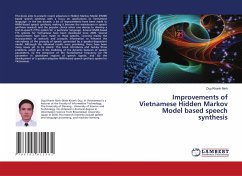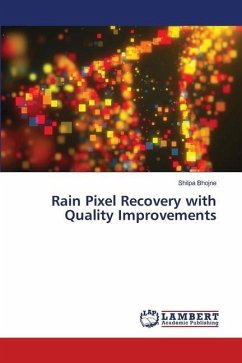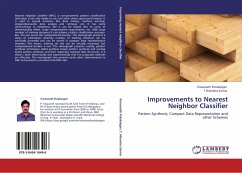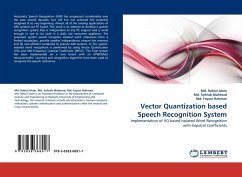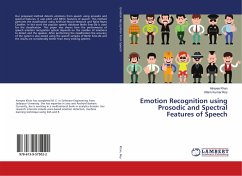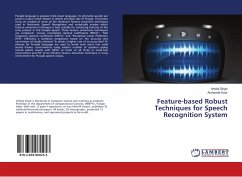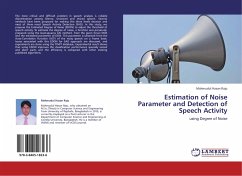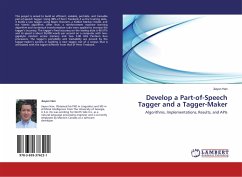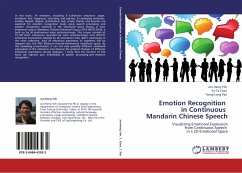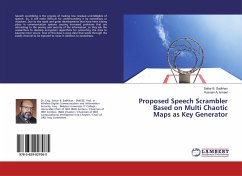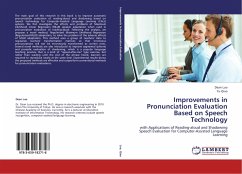
Improvements in Pronunciation Evaluation Based on Speech Technology
with Applications of Reading-aloud and Shadowing Speech Evaluation for Computer-Assisted Language Learning
Versandkostenfrei!
Versandfertig in 6-10 Tagen
39,99 €
inkl. MwSt.

PAYBACK Punkte
20 °P sammeln!
The main goal of this research in this book is to improve automatic pronunciation evaluation of reading-aloud and shadowing based on speech technology for Computer-Assisted Language Learning (CALL) systems. We first investigate the effects and problems of Maximum Likelihood Linear Regression (MLLR) speaker adaptation when used in pronunciation evaluation of reading-aloud. Following the analysis, we propose a novel method, Regularized Maximum Likelihood Regression (Regularized-MLLR) adaptation, to solve the problem of the adverse effects of MLLR adaptation. This method uses a group of teachers'...
The main goal of this research in this book is to improve automatic pronunciation evaluation of reading-aloud and shadowing based on speech technology for Computer-Assisted Language Learning (CALL) systems. We first investigate the effects and problems of Maximum Likelihood Linear Regression (MLLR) speaker adaptation when used in pronunciation evaluation of reading-aloud. Following the analysis, we propose a novel method, Regularized Maximum Likelihood Regression (Regularized-MLLR) adaptation, to solve the problem of the adverse effects of MLLR adaptation. This method uses a group of teachers' data to regularize learners' transformation matrices so that erroneous pronunciations will not be erroneously transformed as correct ones. Several novel methods are also introduced to improve segmental (phone) and prosodic evaluation of shadowing, which is a popular language teaching practice that is a kind of repeat-after-me type exercise, but rather than waiting until the end of the phrase heard, learners are required to reproduce nearly at the same time. Experimental results shows the proposed methods are effective and outperform conventional methods for pronunciation evaluations.



